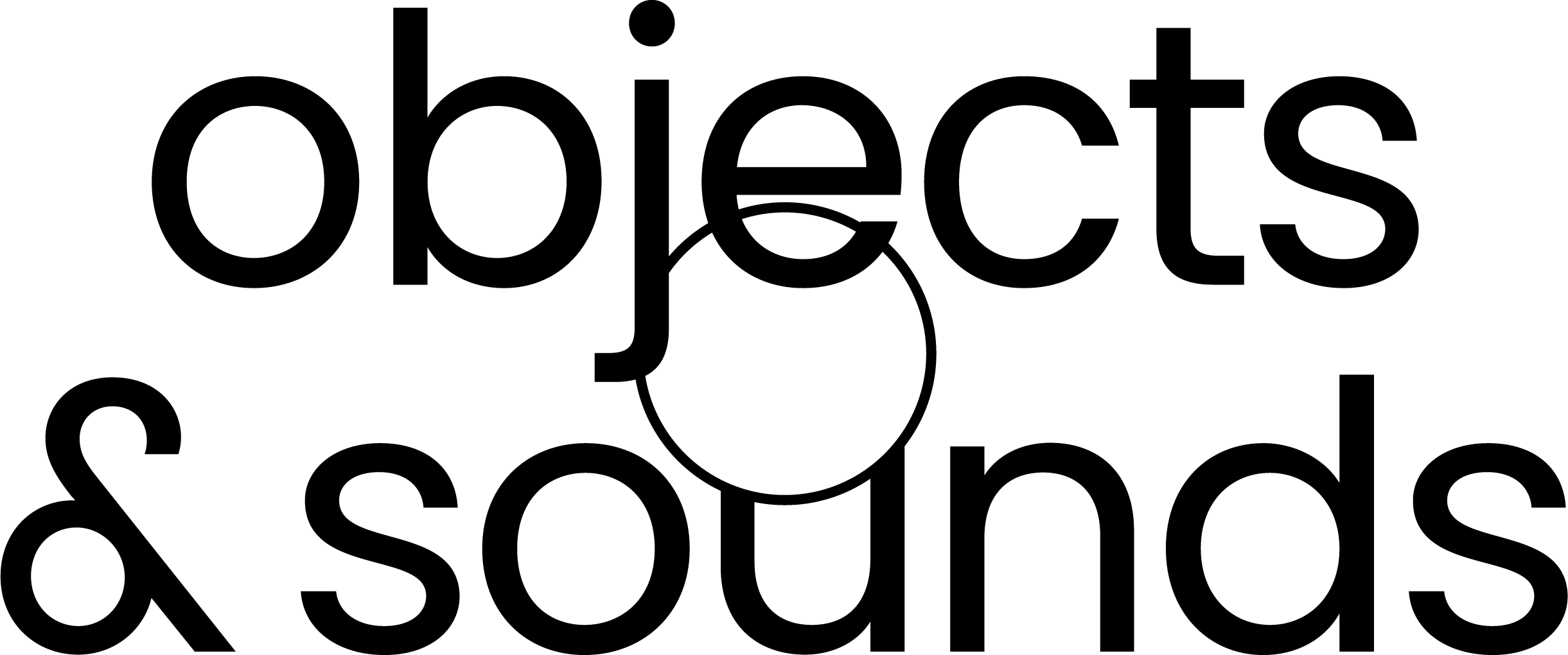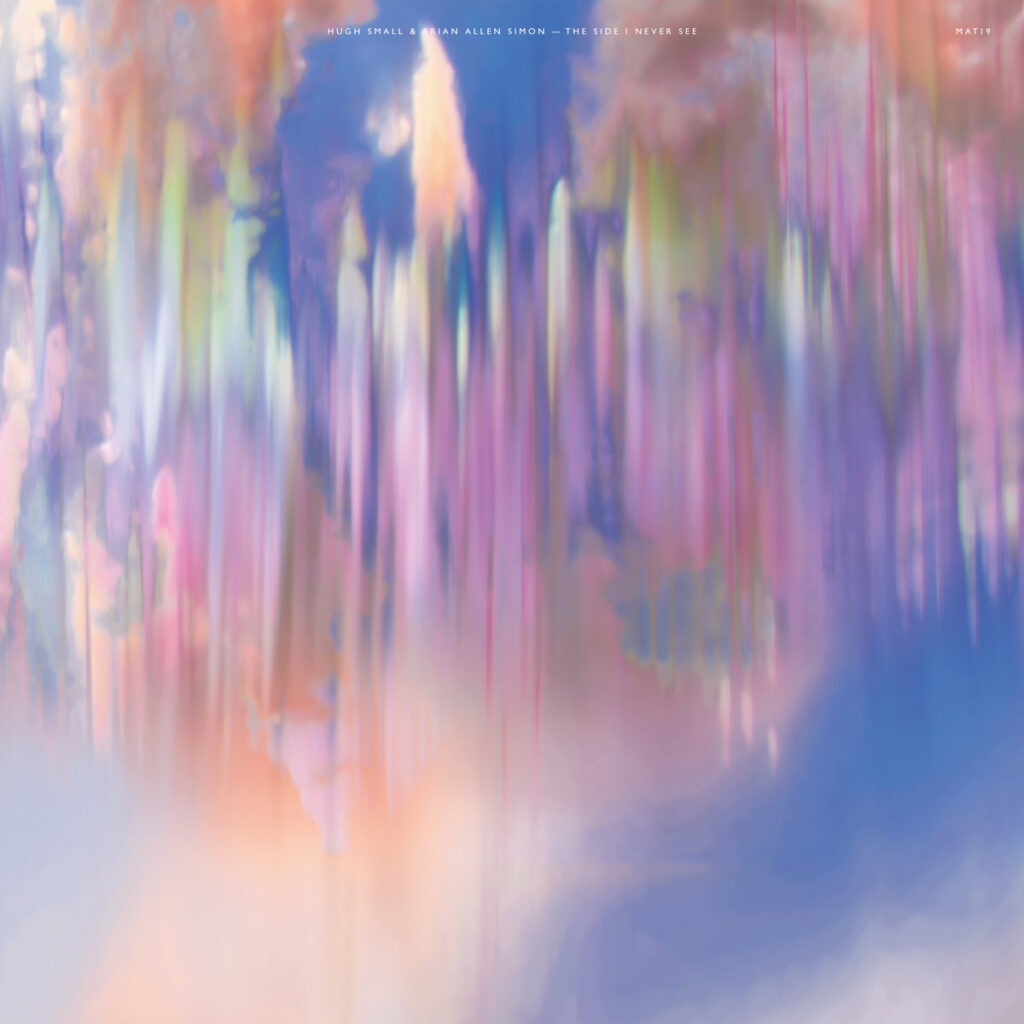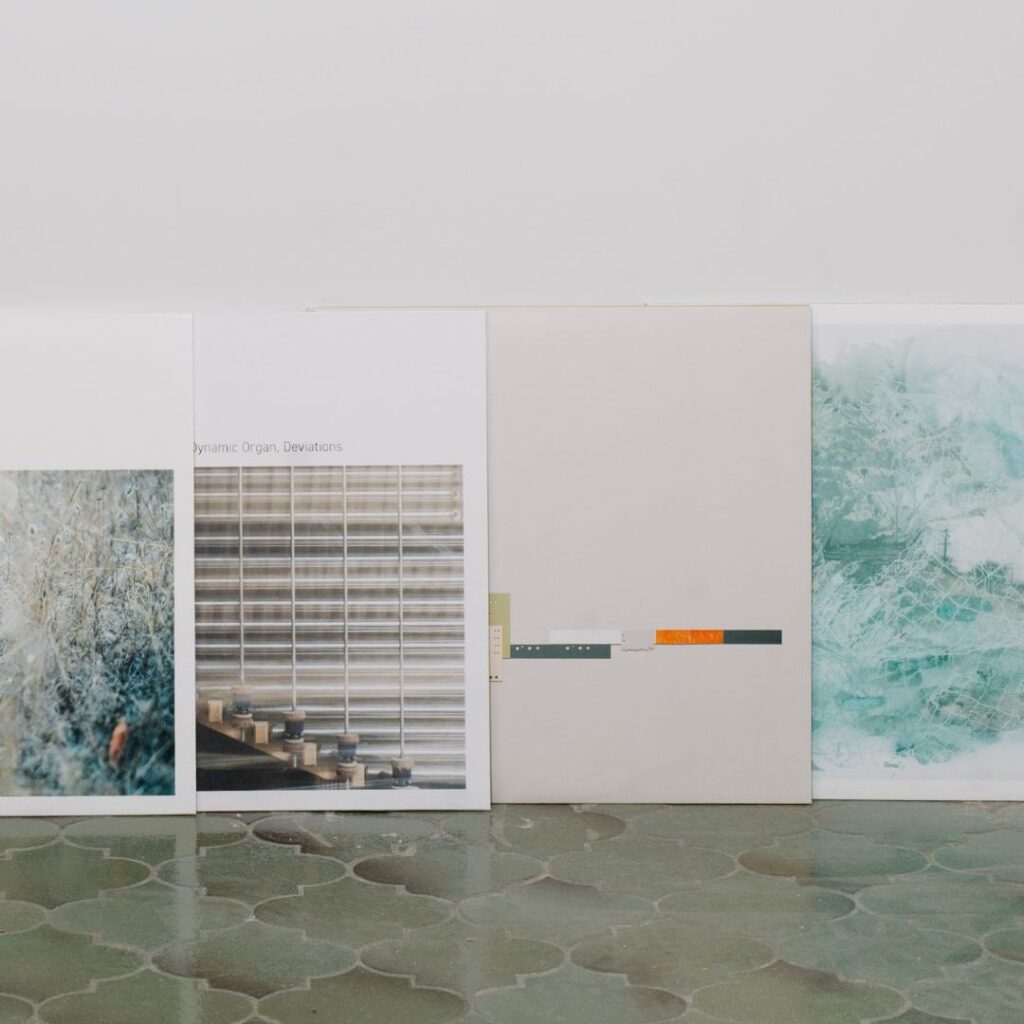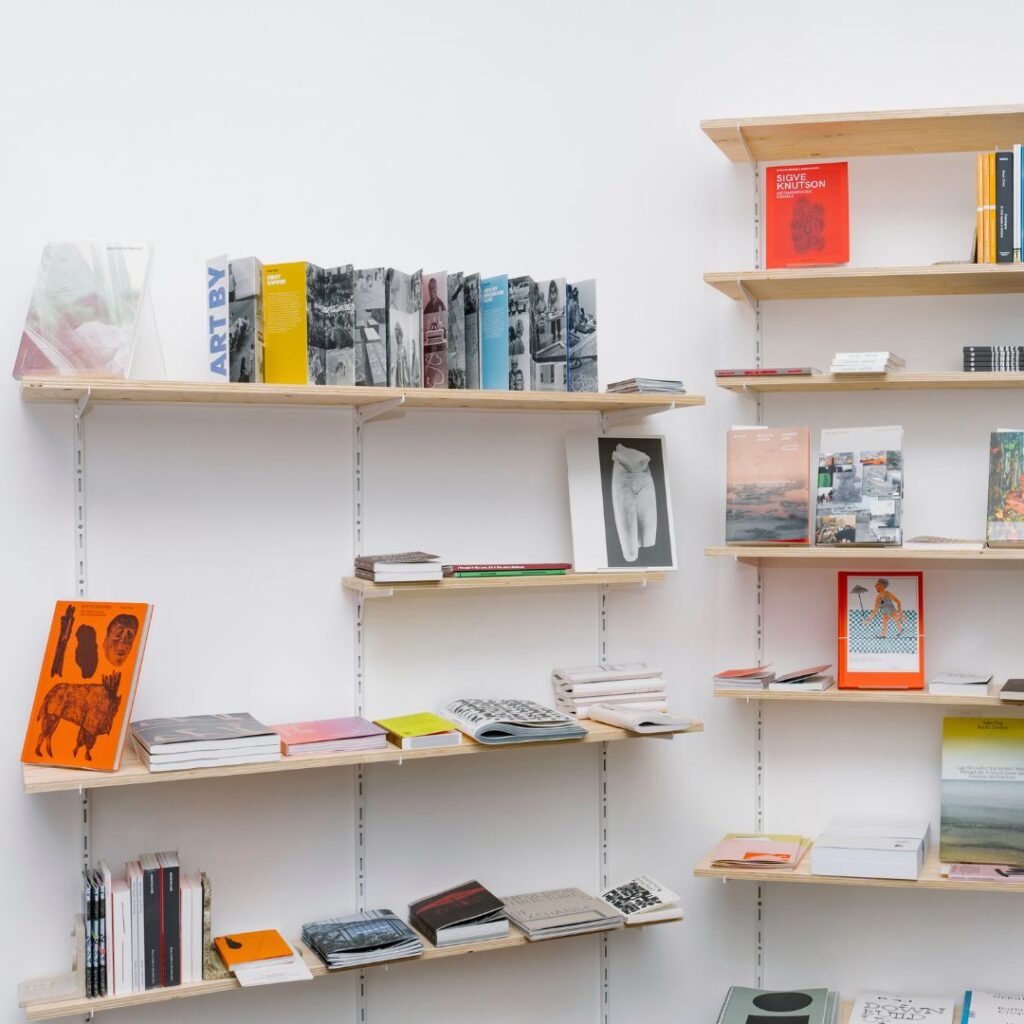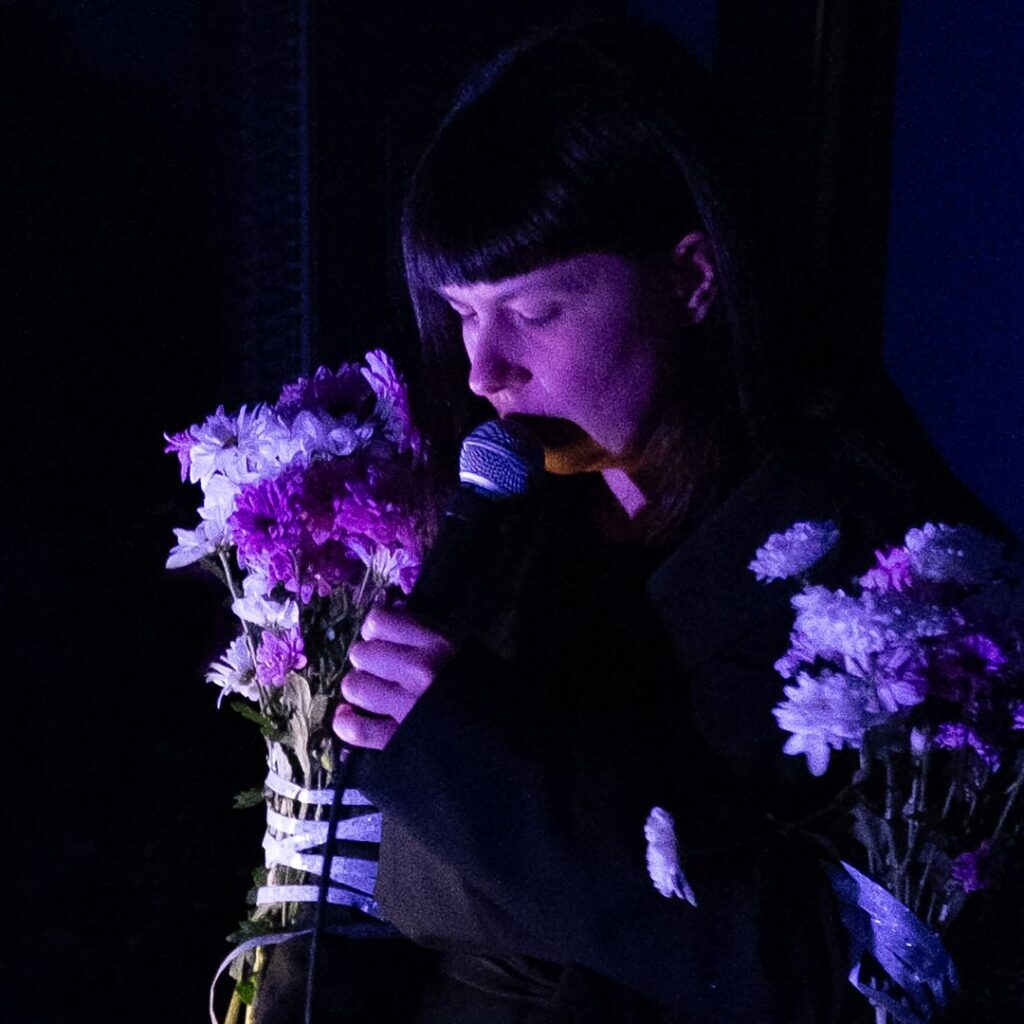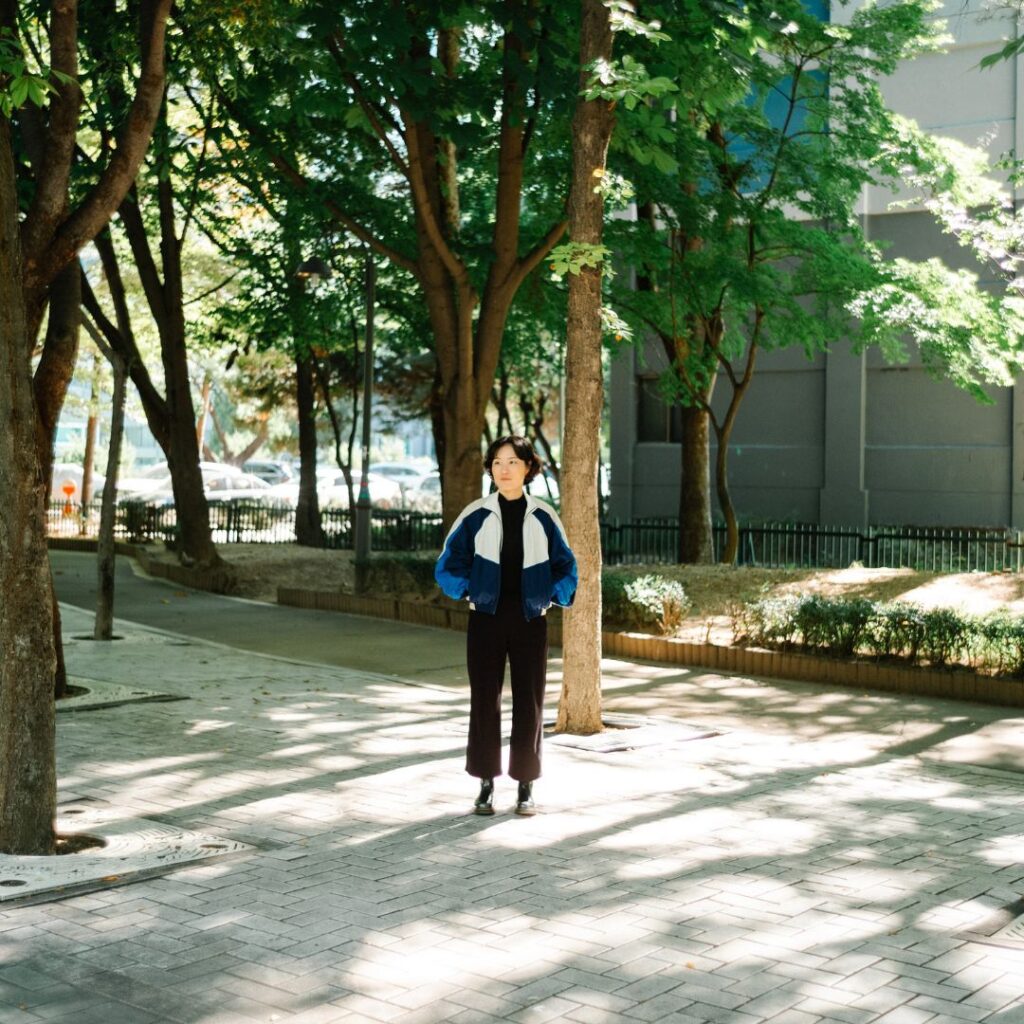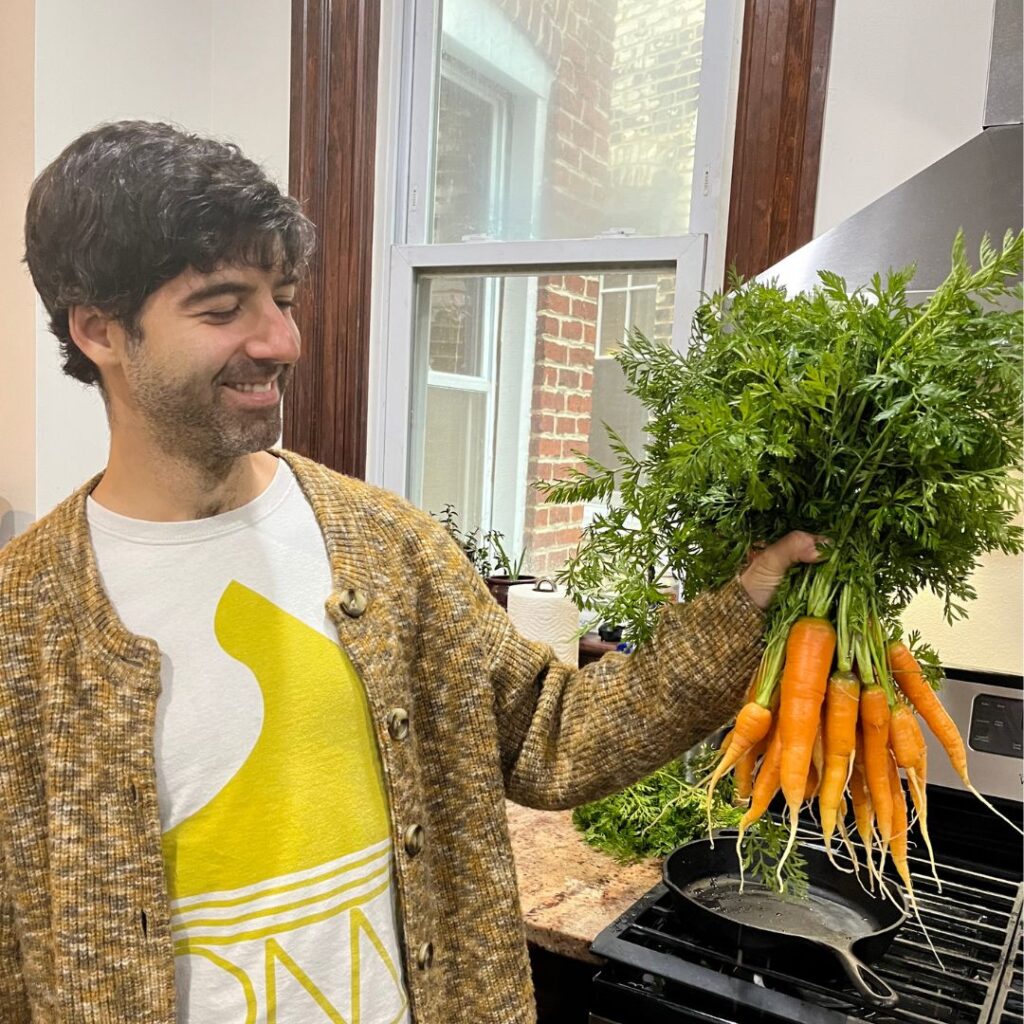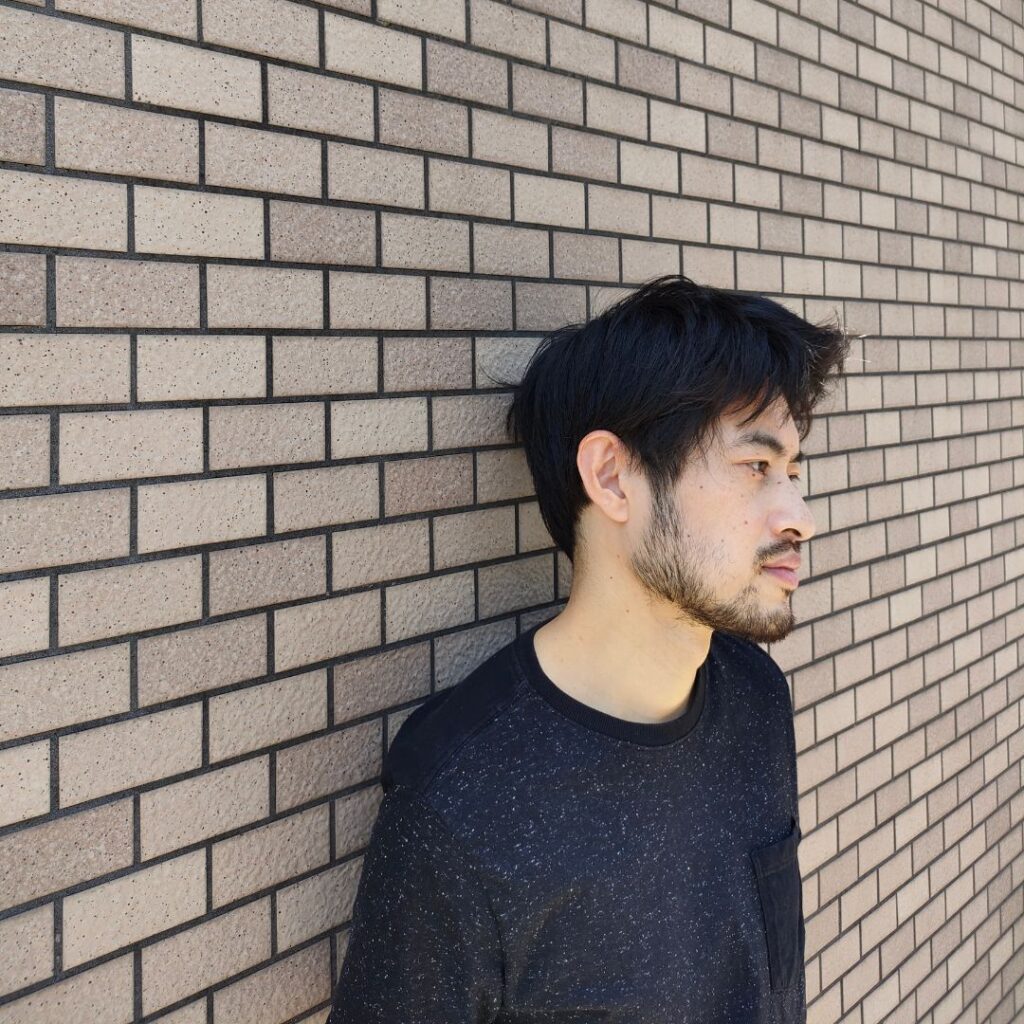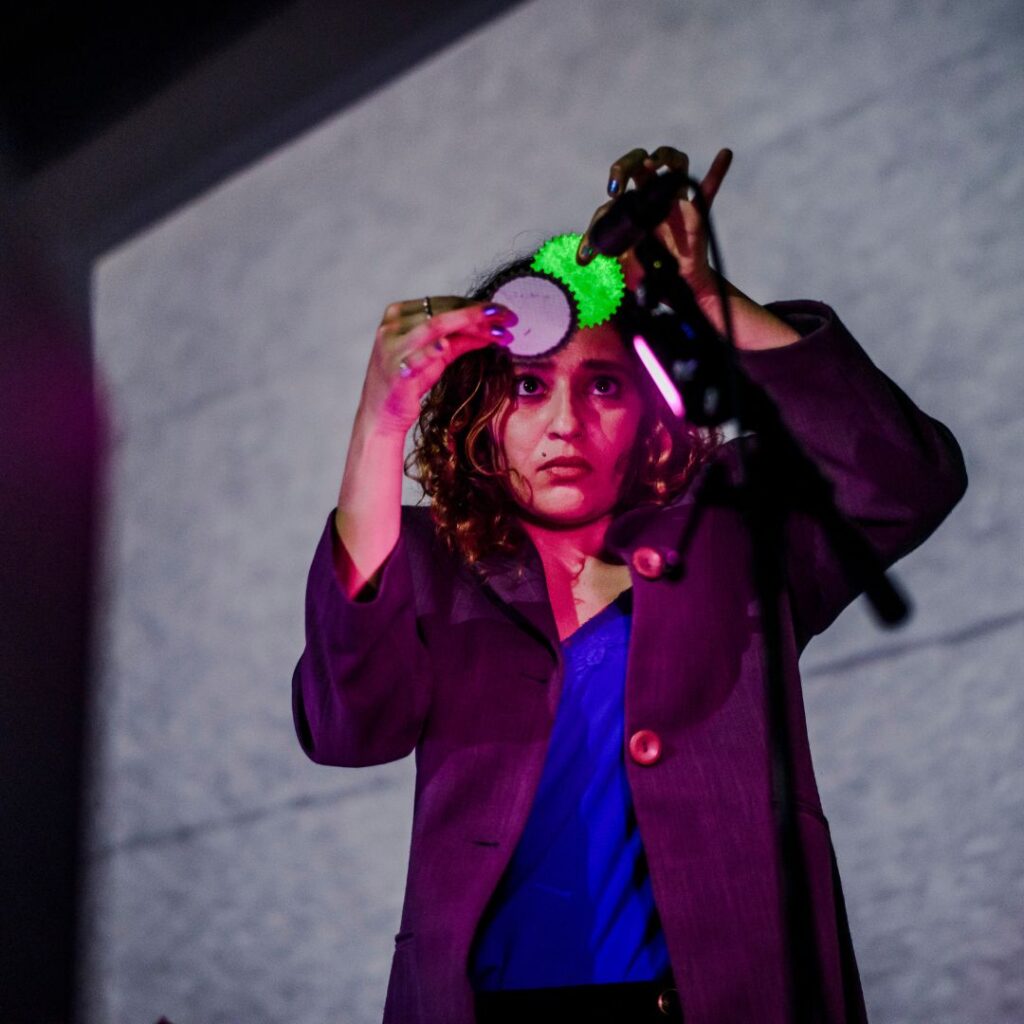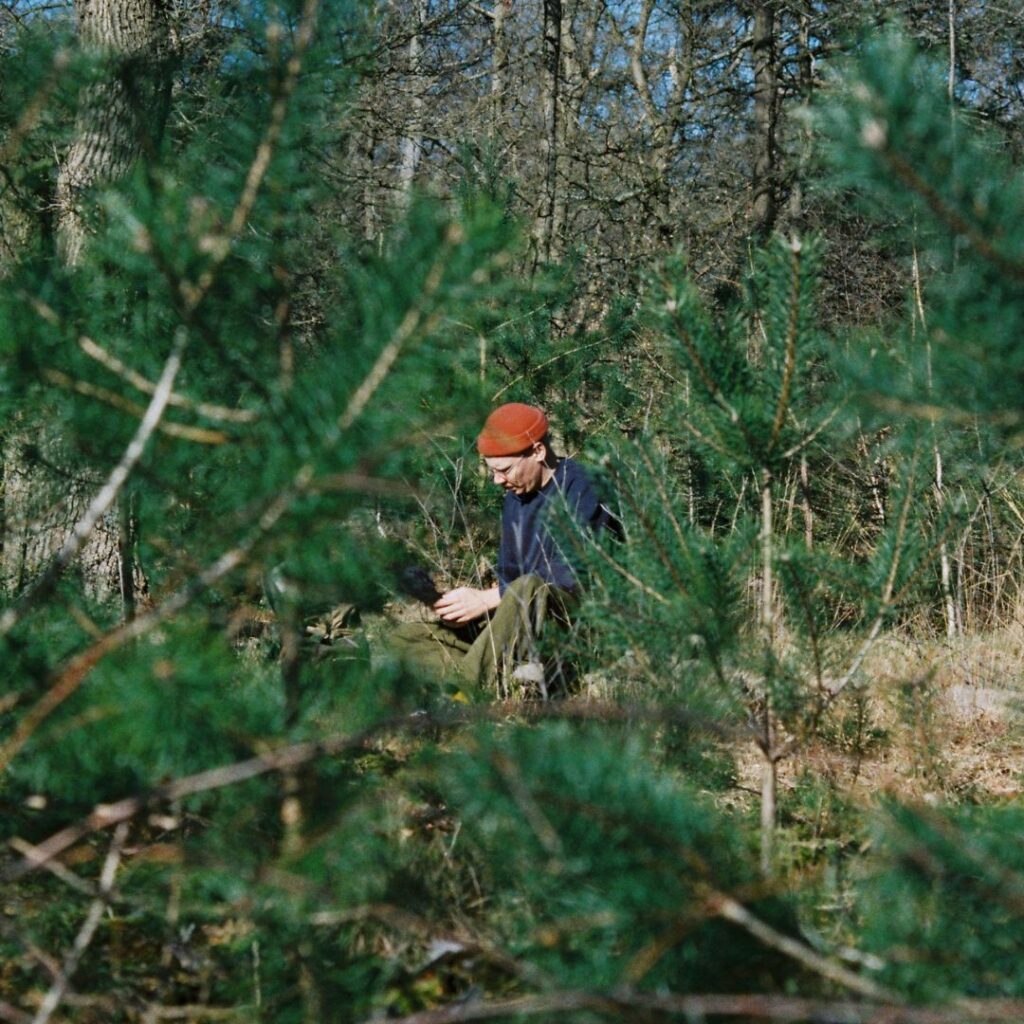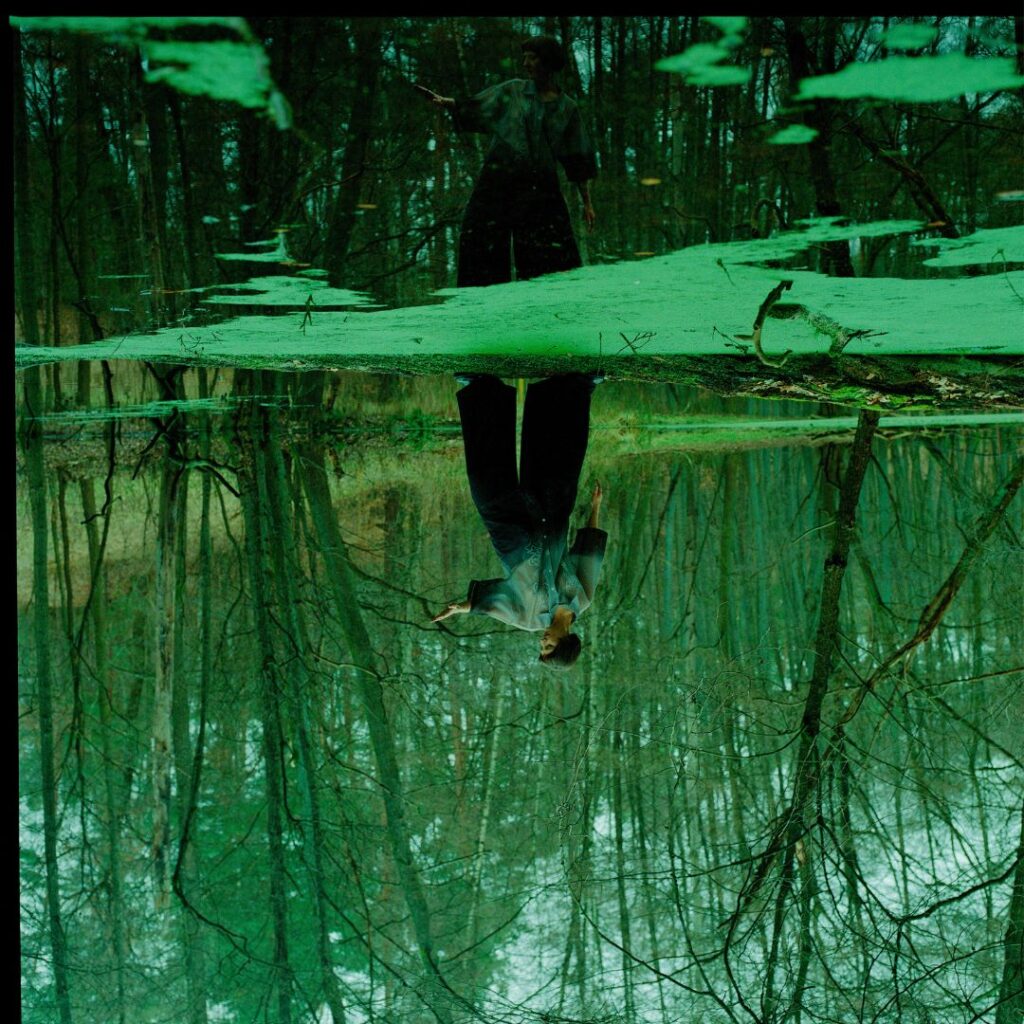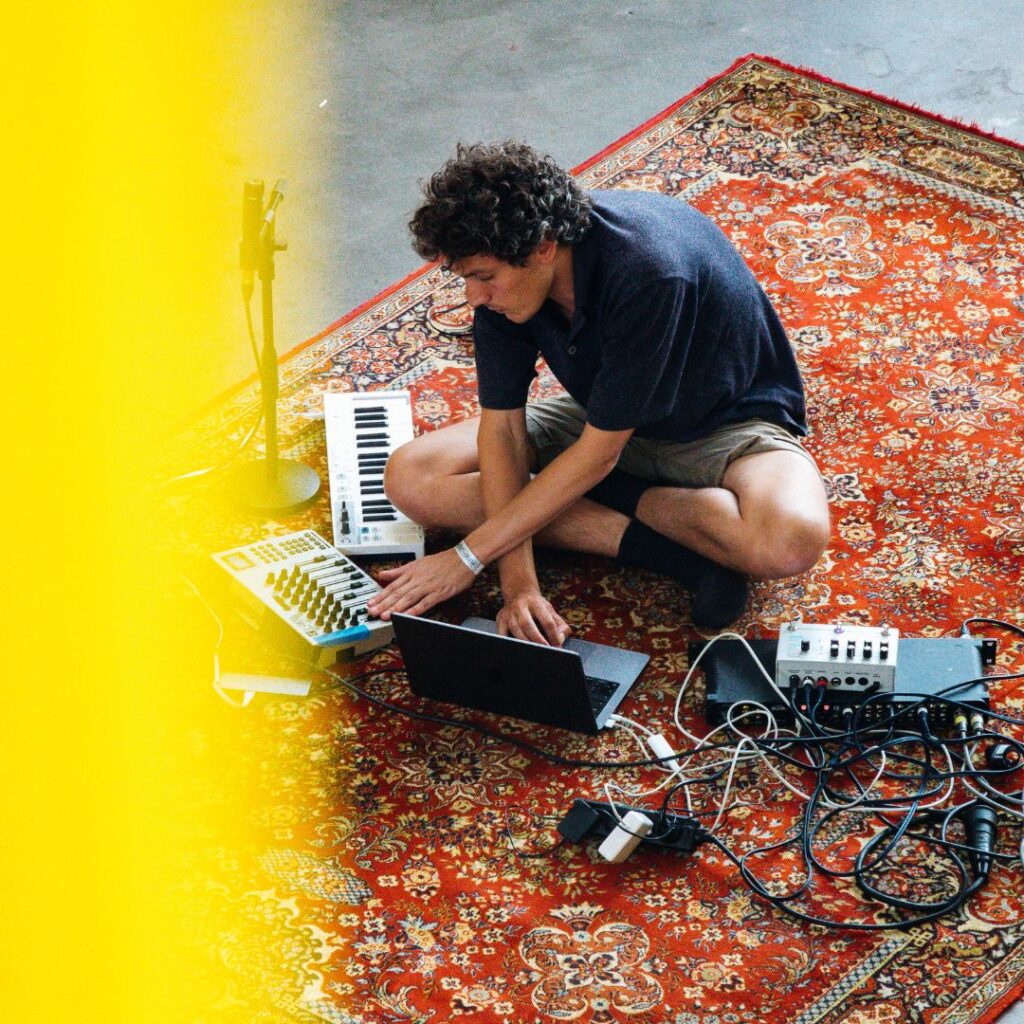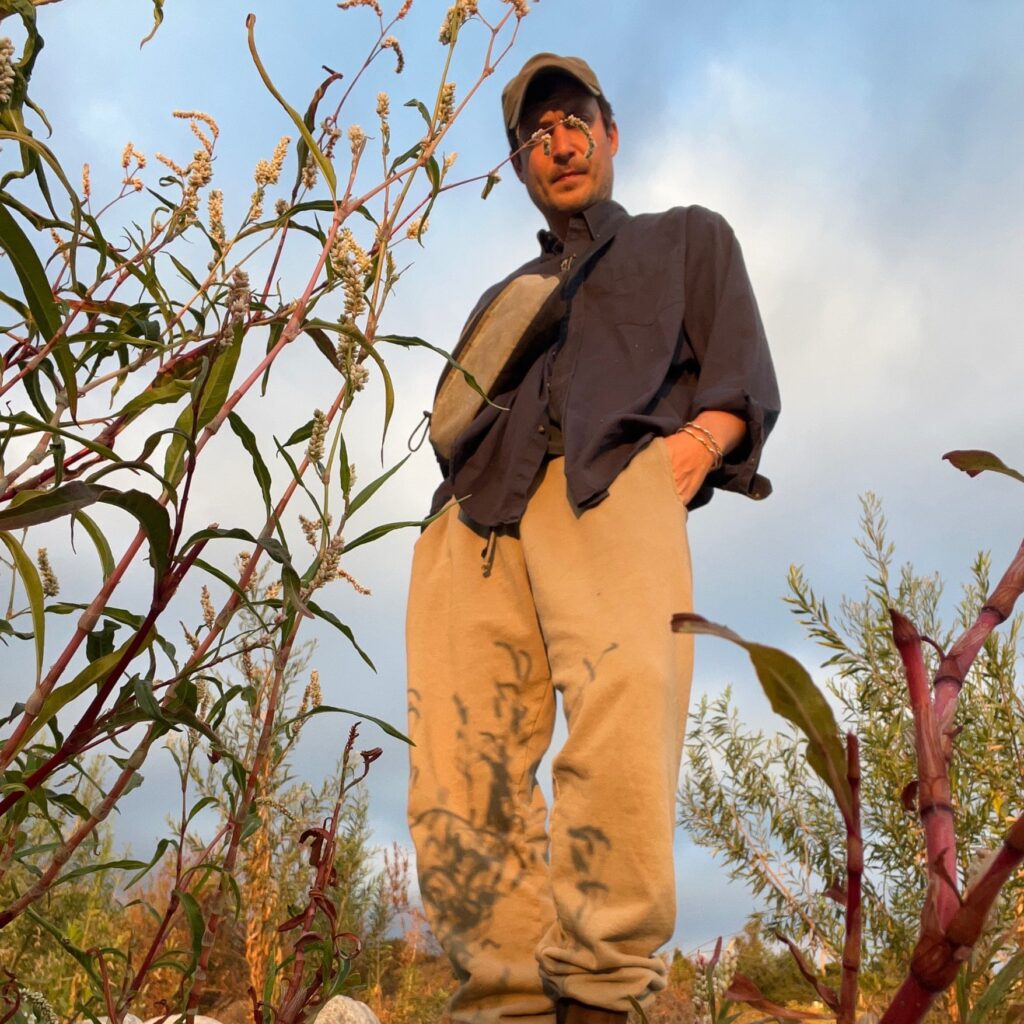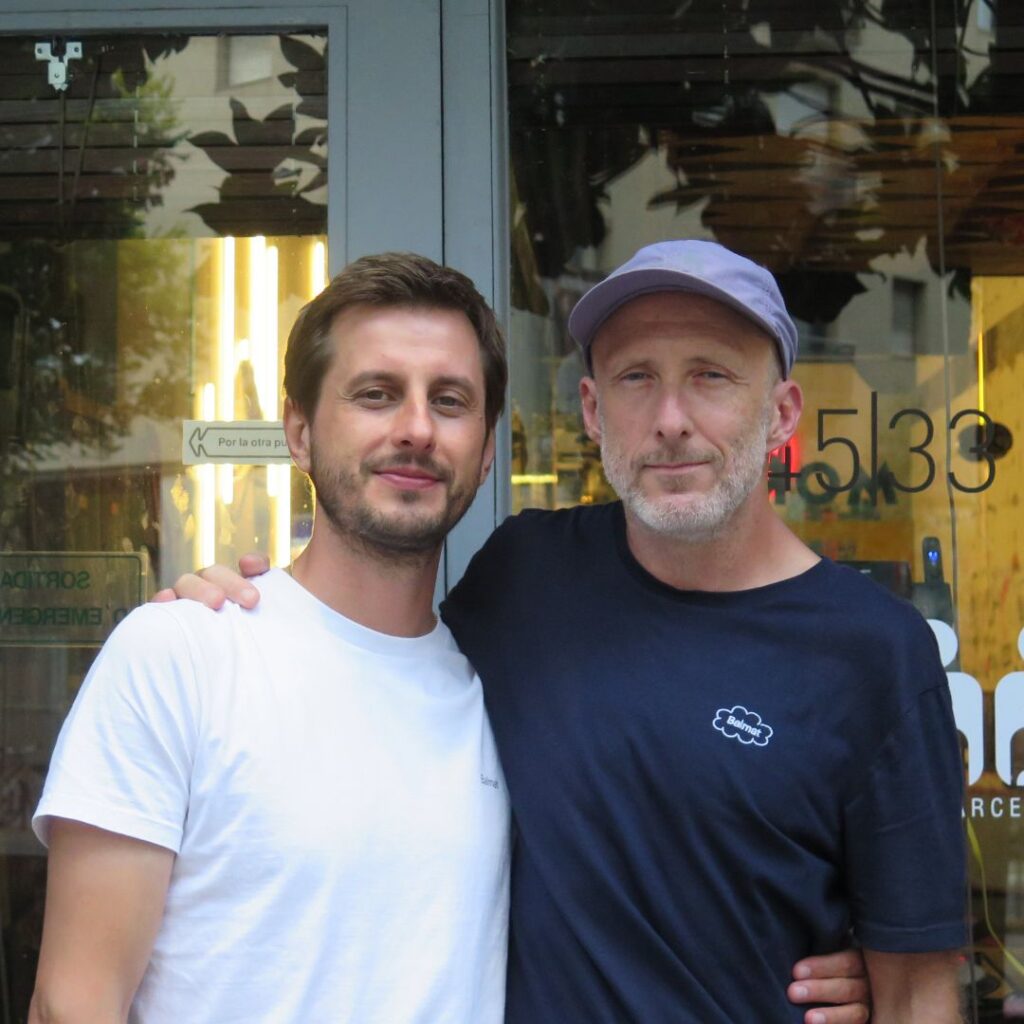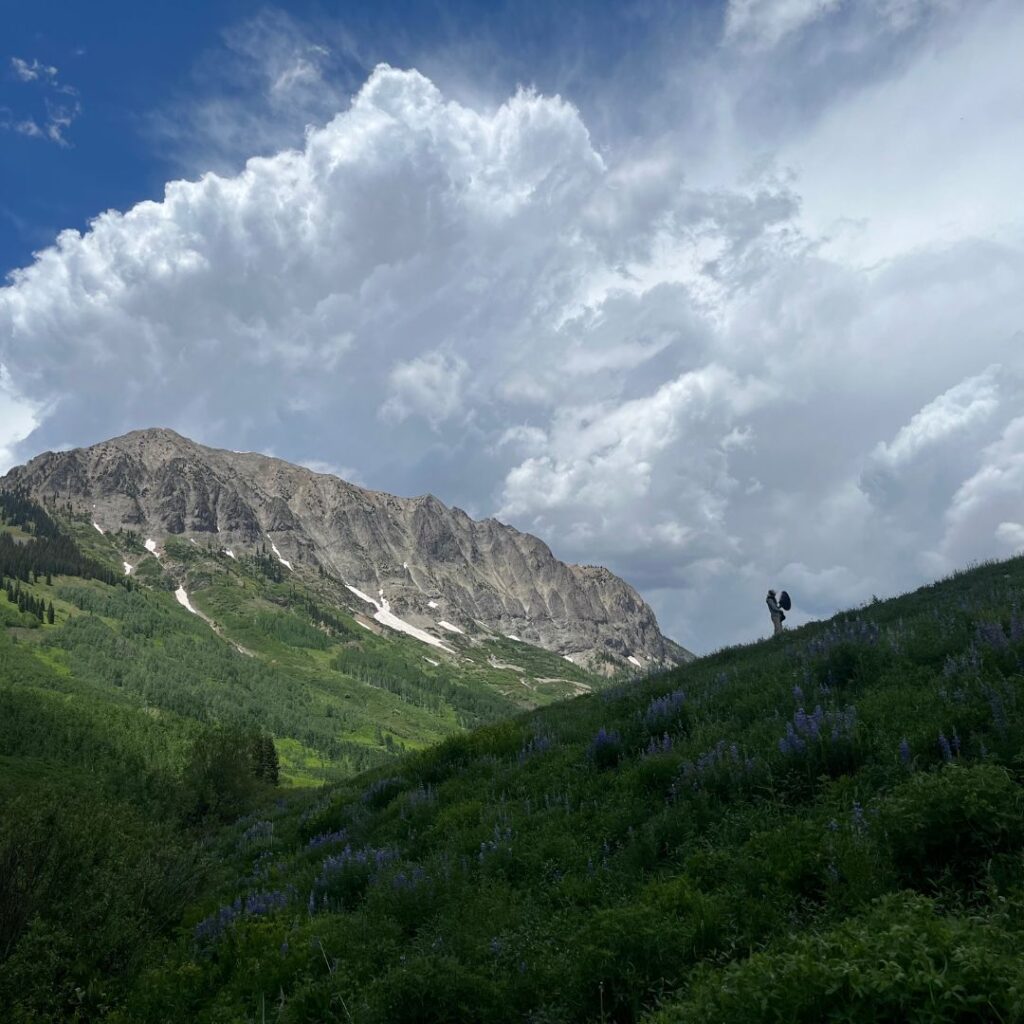Sharing the same tonal sensibility with Hugh Small and Brian Allen Simon
You might know Hugh Small as one half of the Scottish band Vazz and Brian Allen Simon from his solo project Anenon. Vazz only played a handful of concerts in the 80s, but has been described by many as Scotland’s best-kept secret. Now living high in the mountains of Andalucia, Hugh has never stopped creating and playing music. Recent retrospectives on labels such as Stroom and Forced Nostalgia propelled the work of Hugh to a much wider audience. By doing so, it put Vazz on the radar of Brian, an electronic producer and saxophone player residing in Los Angeles.
An improvised recording of Brian playing over the Vazz piece Kazimierz catalyzed a long-distance collaboration. Hugh heard the recording on a broadcast of Brian’s dublab LA radio show. The pair soon established contact and started to exchange music with each other. Without a concrete plan or a fixed concept in mind, their exchanges eventually led to the release of The Side I Never See on the Amsterdam-based label Melody As Truth.
Curious to dive deeper into this intriguing backstory, we spoke with Hugh and Brian about their collaboration. More than just learning about the making of this beautiful album, what we were heartwarmingly delighted to discover is a mutual respect between two musicians who just recently met online and live 6,000 miles apart.
It all started with that one improvised recording of yours, Brian. What inspired you to do that and how did you stumble upon the music of Hugh, first of all?
Brian – I actually found out about Vazz through Melody as Truth. A few years ago, they made this massive Spotify playlist and that list included the track ‘Mission Statement’ by Vazz. When I heard that, I was like – what is this? I had never heard of Vazz before. I believe it was around the same time the first Stroom retrospective was just made available. I was quickly obsessed with Vazz and was just listening to Vazz a lot. The combination of these plaintive piano pieces and these more thrusting post punk tracks seemed really intriguing to me.
When the lockdowns started in 2020, I was listening to Vazz a lot again and the Kazimierz piece just kind of got stuck in my brain. I was doing all my shows from home and I had time to get creative. I didn’t really think about it too much. It was really quick. I recorded my soprano sax with my laptop microphone. It sounded good to me, so I put it in the show.
Somehow Hugh heard it, but didn’t actually get in touch with me. The funny part is that I was just one day looking at the Bandcamp page of Vazz and he had put together a little EP mentioning saxophone by Anenon. I was just kind of confused, honestly. I sent Hugh a message through Bandcamp afterwards and we started corresponding after that.
Hugh – I think a lot of it was COVID-related because everyone had so much time at home to browse and just google. I think that’s how I found out about your show and discovered you played Vazz in it.
It’s a real testament to how the Internet works – between you discovering something on Spotify and me discovering you’re playing over it on Dublab, and then everything that we recorded was all file sharing 6,000 miles separated from each other.
Wow, so, you actually haven’t met each other in real life.
Brian – No, not yet. I hope to get to Europe soon and I’ll definitely make it out to Andalucia for sure.
Hugh – Well, I’ve also never physically met Ziggy of Stroom too. We’ve had a call on Skype, but I’ve never met him. This is the way everything works nowadays. You don’t actually need to physically meet people, although it is still lovely, you know.
What made you decide to work together on an album?
Brian – I don’t know. I tend to not really even do that many collaborations. I’m such a solo artist and I think for a collaboration to work it needs a sort of innate understanding.
I don’t think either of us thought about it too much. I asked Hugh for piano tracks, and then he just sent me a folder with all of these things to work with. So, I moved all of my recording stuff to my living room, played the pieces over and over again, and would just kind of get in the zone. Most of the reeds’ takes are all just first takes. There’s almost no editing.
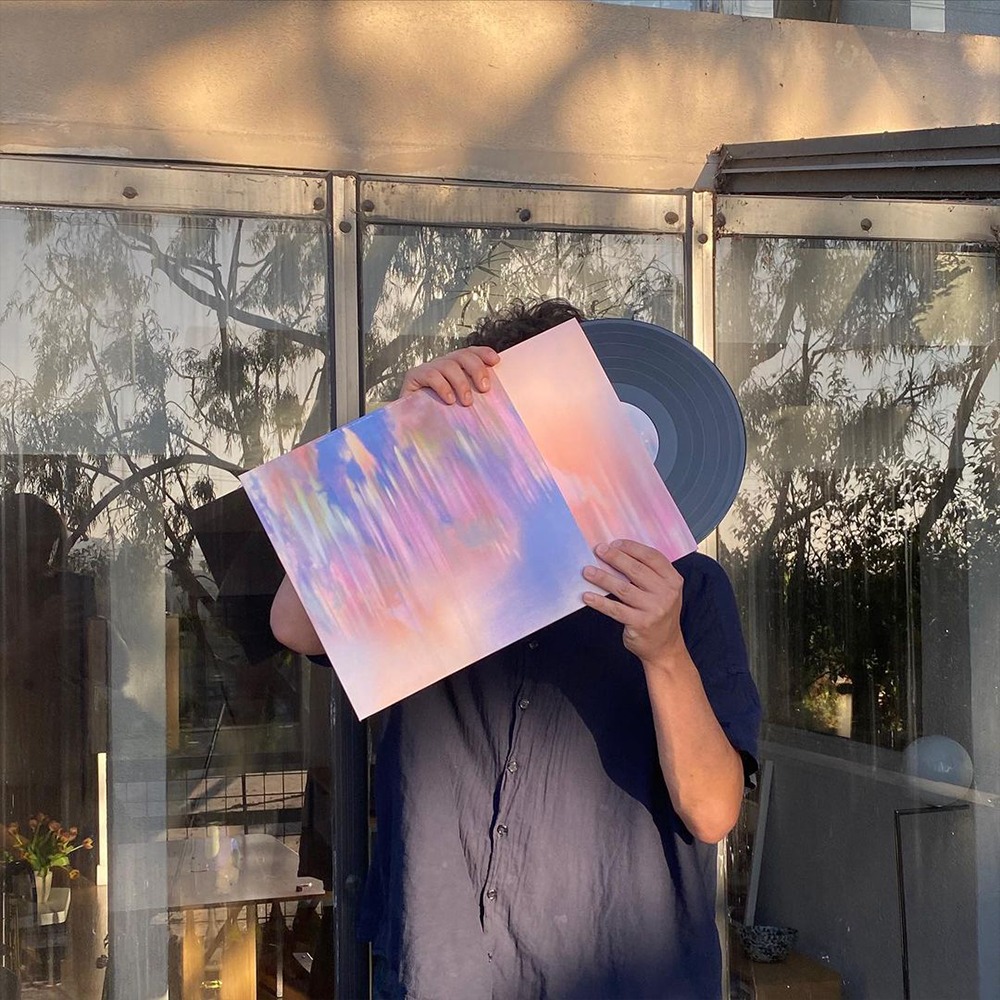
So, It wasn’t really with the intent of making an album together.
Hugh – It started with maybe one or two tracks, but then it just grew from there. I live in a little village in Andalucia with 800 people and we were under an incredibly strict lockdown. We couldn’t leave the village for two months. It was a necessity to take on a project of some sort. And just happily, this happened.
It was the perfect thing, because it wasn’t just an insular project. It was actually communicating with Los Angeles. Although I was trapped physically, I felt I had the whole world to play. Every morning I would wake up at five in the morning and there’d be a little email from Brian with a new piece. It was fantastic. It was a really beautiful six-month period that we put all of this stuff together.
Brian – There are three tracks that happened really quickly, maybe over a weekend or something. Those were feeling pretty powerful to me. I kind of just sat with those for a while and just listened to them over and over again. I was like – oh, these still sound good. After six or seven tracks, we started thinking this could actually be an album, so we started working towards that.
It’s cool that you released it on Melody As Truth, as it’s almost like a full circle. Since it’s a very personal release, why didn’t you release it on your own label, Brian?
Brian – I actually haven’t released anything since 2016. I never made an announcement, but I don’t know what it is going to take to release another record on it. It was a cool period in my life, but I couldn’t do it anymore. I’m a crazy person, but you have to be like a really specific brand of crazy to run a record label, and I think I’m no longer in that specific brand. I’m fortunate enough to have people who want to release my music elsewhere and that feels like a gift. I’m completely honored to release it on Melody As Truth.
Hugh – It was almost like another perfect match that just happened. Just the way the music happened. It all went great. We’ve established such an easy three-way communication with Jonny. The sleeves by Michael Willis are fantastic too. It’s just a lovely production and it enhances everything about it. To me, it’s the most pleasing thing I’ve ever released, even more than the retrospective releases. Because it’s the music from now rather than tracks from the 80s. I’m very, very pleased with it.
And is there a reason why you decided not to release it under your monikers?
Brian – Hugh had actually written these liner notes that didn’t make it on the final cut, but he said something funny about us both having identity crises. I think that’s part of it. I actually had to convince Hugh to use his name, because he initially wanted to do it under Vazz.
Hugh – Maybe initially I did, because it felt like some of these tracks were already accredited that way on the Stroom albums. But in retrospect, it’s perfect. It’s just our own names because we decided it was going to be very organic. Everything that’s played is virtually all by ourselves. There are no drum machines or other things like that involved.
That must have been quite personal to share about this collaboration under your own names.
Hugh – It was quite a personal collaboration. It’s not just about music. We were talking about everything: from what was going on in the world to culture and literature and so on. So, it wasn’t just, here’s a track, get on with it. We actually had a lovely rapport with each other.
Brian – We were playing therapist with each other. (laughs)
Do you imagine yourselves playing live together as well?
Brian – I would love to, though I know Hugh is a little bit more hesitant about that.
Hugh – Yeah, I’m not very good on stage. I’ve never been. I don’t think there’s going to be any change now. I can only really work on music on my own, which is why I can only work with people 6000 miles away.
You don’t feel the need to share your music to a live audience?
Hugh – Honestly, I wish I could. I would love it, but I just can’t. I can’t even read music. Everything I do was always just by ear. When I get on stage, I would just crumble. Even with Vazz, I think we only played 10 times in five years and that was with the singer Anna Howson out at the front and I was always at the back. I was never, you know, getting on my knees and thrashing my axe. I was more like the guy in the Pet Shop Boys at the back.
Brian – I think I’m going to convince Hugh at some point. It doesn’t need to be a nice piano. Just get your guitar and we’ll just riff.
Hugh – Maybe for the third album.
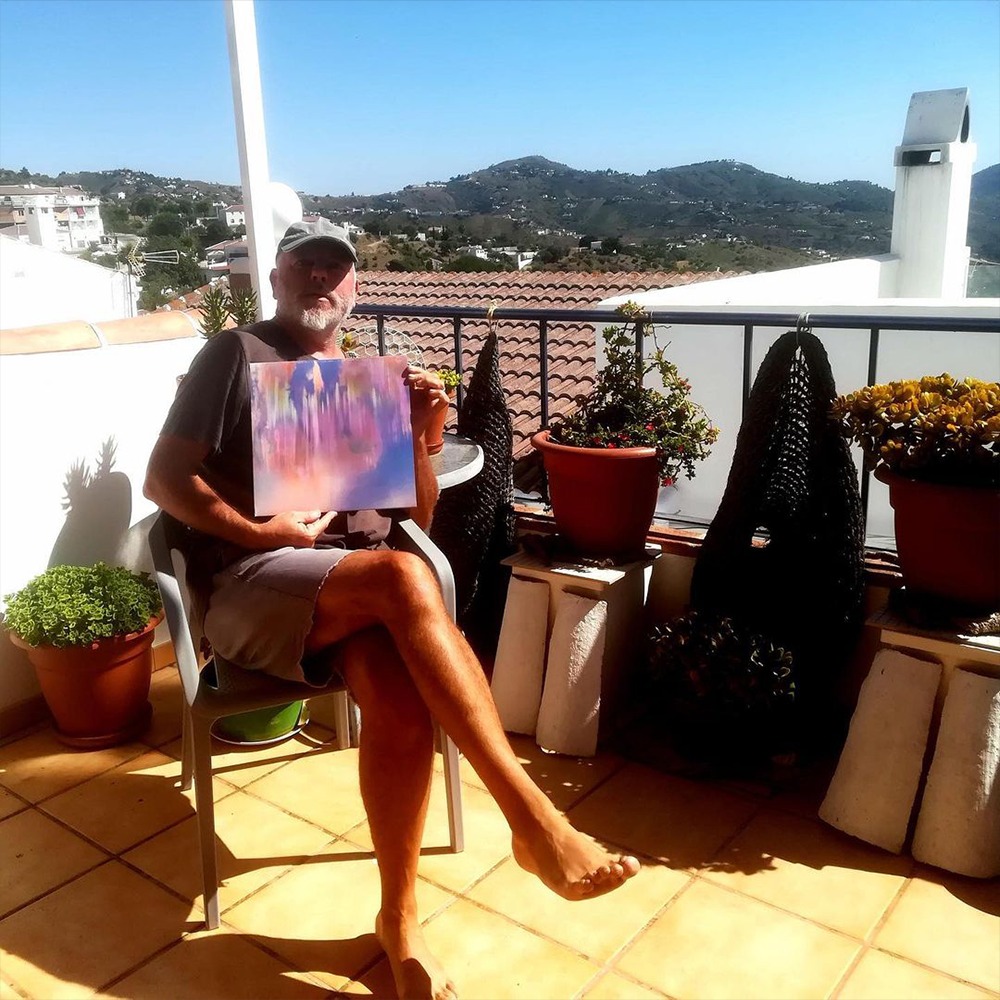
Since you mentioned a third album, do you plan on exchanging more music in the next little while or are you probably already doing that maybe?
Brian – Hugh’s been pushing it, but I’ve just been so inundated with life stuff recently. I would like to keep working on some stuff, definitely. Hugh’s tracks are kind of like miniatures. Compact but dense and it keeps it fresh for me. They’re not too sprawling, but what you can do within that framework is enticing to me. I feel we have a very similar tonal sensibility. Just like Hugh, I don’t read music either. I’m a completely self-taught musician. If I sit down, I can read music, but I can’t just go up to some written music and play it.
It sounds like it always mostly starts from the piano and then you just put your saxophone on top, Brian. Did you try it the other way as well?
Brian – Actually, that’s how this whole record is built. We didn’t try it the other way around, but I’m definitely open to it. Something just kind of clicked with that way of working. I think I had never really worked in any kind of formulated way before and there was something relieving to it. There’s a structure and I can just try to play with it and go anywhere I want to and that feels good. With my own music, it always kind of comes out of oblivion. I never have a plan. And sometimes I have periods where it’s not happening. That can be for two years or something.
Hugh – I’m kind of very OCD, so I have to work on very specific patterns and frames. I think it’s great that I can be very specific and Brian can then be free to go anywhere he likes. I think that’s why it works so well. It is very grounded at the back, which I think makes it very palatable for the ears.
Brian – There are also these synth and guitar accents from Hugh that shift the landscape in subtle ways, like a grounded piano time-based thing. In that sense, I was really trying to pick up on those little accents and notes in my playing. I listen back to some of these tracks and I hear these kinds of weird call and response moments that happen even though these piano pieces are fully laid out.
The track Kazimierz is obviously an older track. Did you revisit other things from the past as well, Hugh, or did you really start new pieces?
Hugh – All of the tracks except for Kazimierz have never been released, although the piano pieces had been recorded previously and I would just put guitar or electronic synths over them. There’s only one track that’s really brand new that has just got guitar in it and it’s called Veridians. That’s the longest track. It is three minutes or something. I have kind of gone off my piano phase and all I work on recently has mainly guitar in it. But that’s just how it works. Sometimes you just go through cycles. I also don’t have a piano anymore, so I’m kind of getting back to being more minimal.
So you have a sort of repository with fragments from the past you can revisit?
Hugh – I’ve got so many recordings. It’s unbelievable. Probably in the last three years, I’ve got 100 instrumentals and I just accumulate them and see what happens.
Brian – Do you make music every day?
Hugh – No, actually not. I tried tuning my guitar the other day and it was so out of tune with the heat. It was just too hot to do anything. For me, it’s more of a winter project.
Brian – I’ve been guilty of not working on music recently too, but it’s a different energy in the summer, for sure.
What’s the trigger for both of you to start creating something?
Brian – That’s something I think about a lot. There are a few different angles that it can come from. Recently, I have been house-sitting in a place that has a piano. So I’ve just been playing a ton of piano and recording with my phone just for fun. Having access to a new instrument always spurs something on.
The older I get, the more I also realize how much space from the outside world I need to make music. Going out of town for a week to just read and kind of get into that sort of headspace helps me to then sit down and actually be able to focus on one sound.
Right now, it’s summertime and COVID restrictions are easing up, so I just can’t work as much as I would like to. But in general, good literature really helps to get the mind going.
Hugh – I think for me it was this location. By moving to Andalucia three years ago, I got a whole new kick out of making music. It’s a beautiful space to be. It’s incredibly open and it gave me a whole new perspective to making music. I also got a lot of stuff laying around here, which I used a lot in my music last year. Being at a new location always helps. I know Brian made albums in Italy and Greece too.
Brian – The last two albums were made at residencies. I definitely struggle consistently making work in Los Angeles. I’m kind of taking it on as a challenge to make another record here, because I still want to and I think it requires me to go way more internal, rather than just going somewhere remote and work. I love doing that and it’s easy for me to kind of get into the zone pretty quickly when I do that, but to sit down in your living room and just lose yourself in the sound is a completely different energy and that’s something I’m trying to work on at the moment.
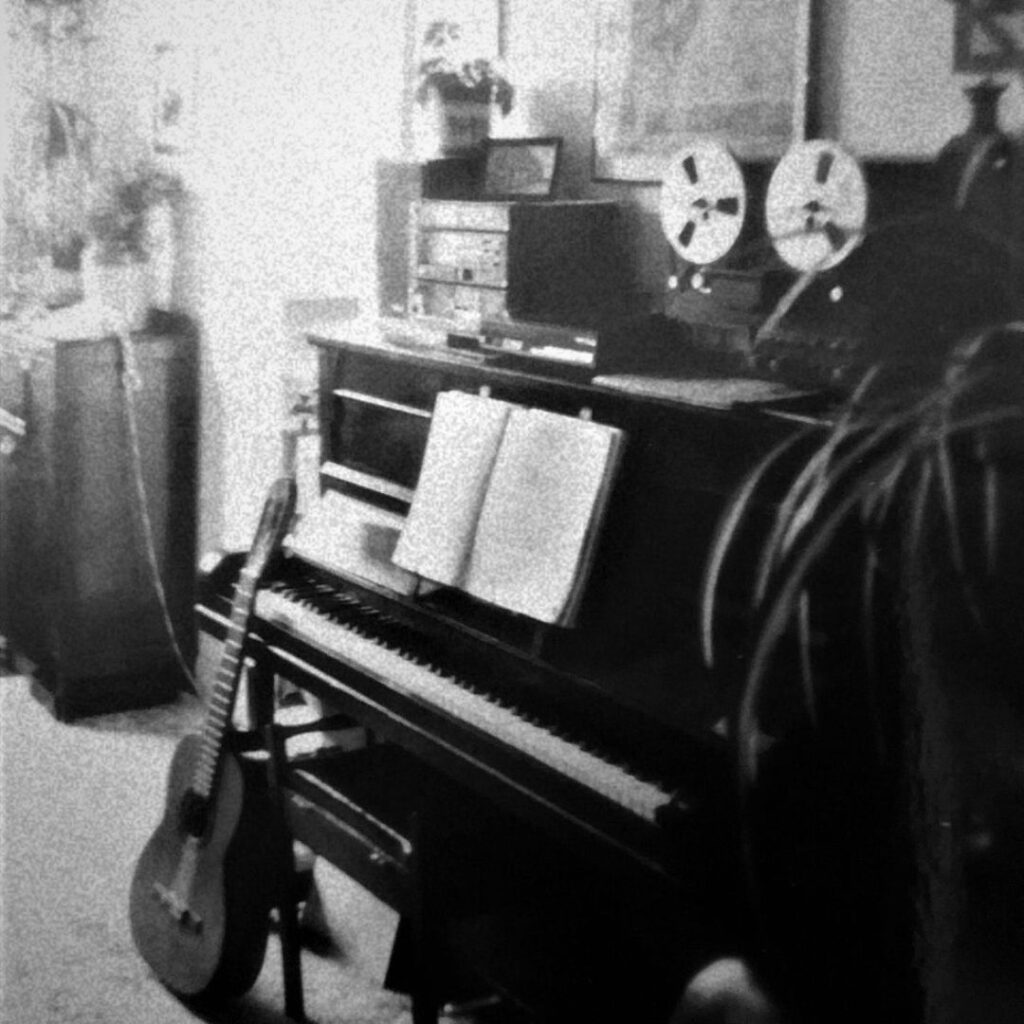
But you do have some albums that are centered around LA.
Brian – Yeah, for sure. There was a record called Petrol in 2016. After I made that, I don’t know if I could do this again. I love that record. I think that’s probably the best thing I’ve made, but it was kind of exhausting at the same time. Also, my setup is getting more and more minimal. A lot of my synths break all the time and it’s getting too expensive to fix. So, I was like, what can I work with? I ended up working with a lot of YouTube samples, field recordings on my phone, saxophone and bass clarinet. There’s so much you can do with so little these days.
Hugh – You know you should work with some cicadas. They’re very cheap. (laughs)
But yeah, it doesn’t always have to be instruments. I sit here on my balcony every morning and the birds here are just so loud. I have a hundred birds as roommates. It’s just amazing. You don’t actually need anything else. Although, of course, there’s always a Spanish motorbike that flies down the street and ruins it.
As you mentioned good literature as a source of inspiration, what are you both listening or reading to get inspiration from?
Hugh – I have always been listening to a lot of eclectic things, even when I was in my twenties. I don’t know if you know the music from Harry Partch, an American musician in the 60s. His work is just amazing. He made a lot of instruments from junk that are like toms and make marimba type noises. I love the album Petals in Petaluma. It was so ahead of its time.
Brian – Marguerite Duras was definitely a big influence for me last year. Also Clarice Lispector, a Portuguese writer. Her short stories have been really fantastic. I’m also reading a book of Robert Bresson’s interviews right now. Paul Bowles’ The Sheltering Sky is also a constant. I try to read that every six months.
Music-wise, I have been listening to this guy called Triad God. I think he’s like a Vietnamese Cantonese rapper who lives in London. He has a tape that came out in 2012 on the label, Hippos in Tanks, and that’s been on repeat recently. I’m also listening to the new Tirzah stuff. I can’t get enough of her. There’s also some Miles Davis as always. The new Suzanne Kraft record called About You is really fantastic too.
Hugh – When I hear something new, I will just listen to it all the time. Most recently, the Floating Points album with Pharoah Sanders really stood out for me. It’s just so immense. I can just listen to that play all day every day.
It’s interesting how you both mention jazz a lot, but you don’t really want to box your sound as jazz, either.
Brian – The spirit of my music, I think, comes from jazz. But what it actually is, it’s something else.
Hugh – A good friend of mine that is really into all types of film music actually told me the music is very filmatic.
Brian – I want to try to make things for deep listening. Something to put on and that’s the only thing that’s happening. You sit, you listen and you let it just kind of soak over you.
Hugh – I think that’s why all of the tracks were very short, as well. They’re quite intense. I couldn’t imagine us making a five-minute track.
Brian – Yeah, there’s a lot of notes. You can listen to half the record and feel like you got a good chunk of sound.
That was definitely the feeling we had when listening to the tracks. The sounds are very immediate.
Brian – Oh, for sure. With two-minute tracks, you can’t make it too gradual. That was exciting for me too, because I don’t think I do that in my own music. I wouldn’t be as upfront with the horn, so that was a good exercise for me. That was my role. I just kind of come in and riff for two minutes and that’s it.
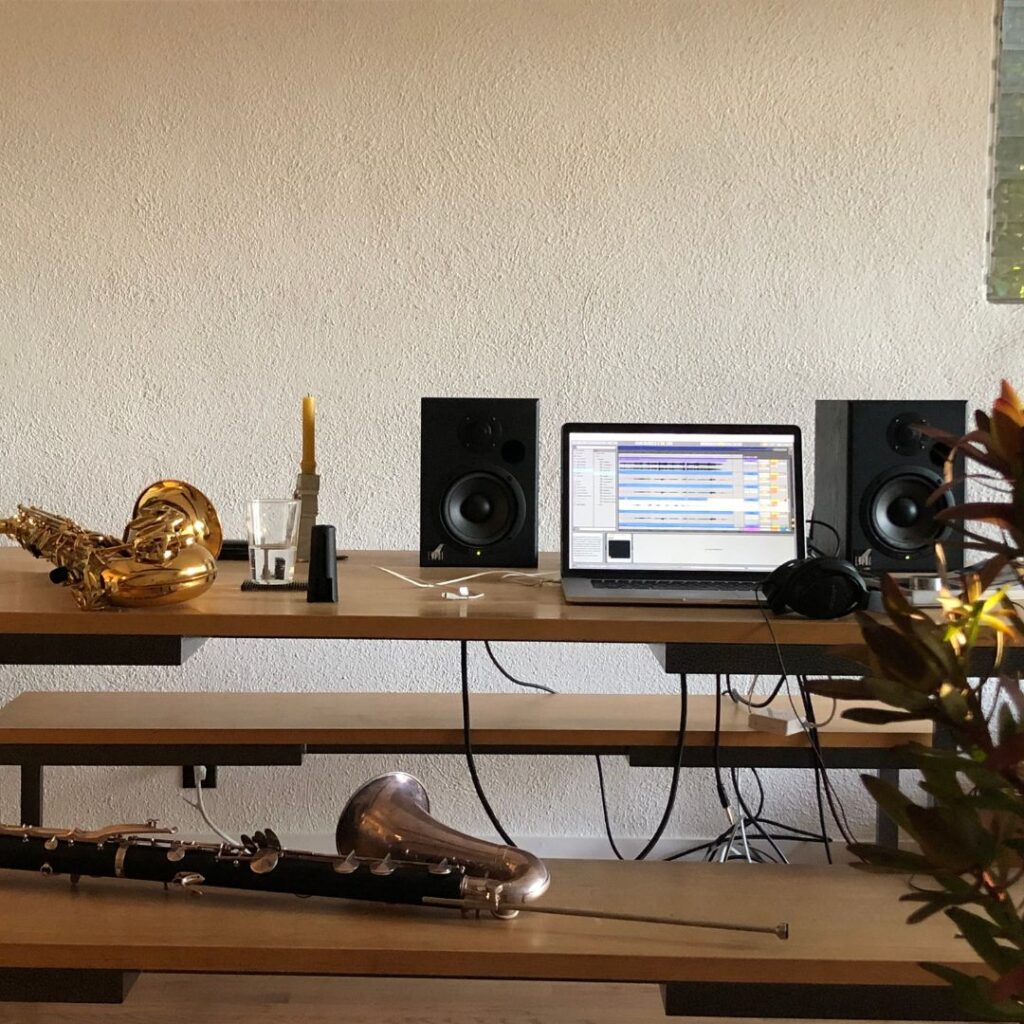
And what did you do differently in the album that you normally wouldn’t do in any of your personal work, for both of you?
Hugh – I guess I did what I’ve always been doing for 40 years, just playing as I go along through an echo pedal. I don’t really have any different way. I build up tracks the same way as I’ve always done it and the first time I ever went into a studio was 1981.
You know, that’s the way even the Vazz tracks used to always work. I would make the whole piece of music and then I would give Anna a cassette tape. She’d come back a few days later and give it back to me with singing over it. I literally could not work any other way. If someone started singing some refrain, I couldn’t put music to it.
I’ve always been stuck in this same building up procedure of the music. So, I could feel it when it’s finished. But then, it’s never really finished, as I realized with Brian. For me, the piano tracks were finished a long time ago and I realize now they’re even better with saxophones and bass clarinets.
Brian – In terms of my own playing within Hugh’s framework, I felt like I didn’t need to restrain anything to fit. I understood these pieces totally on a level up coming from Hugh that I hadn’t really felt from anyone else. I think they created these beds where I could just come in and let loose on the horn and just not think about it and just really kind of dig in and play.
Hugh – I think it also worked great because we also had no pressure, as well. It was not like we were recording for a label and making an album. Nobody even knew that we were doing it. There was a lot of freedom to make mistakes or whatever.
Brian – There was a lot of emotional room too, especially in the context of the pandemic. I remember making the track Myxomorphia. It was the first one we did and it had layers of tenor and bass clarinet. I went to bed, then I woke up the next morning and just played it on repeat and I was just amazed. This is something. It’s a cinematic track.
Hugh – I think the track sequence is really good too. Brian was the one who put the track listing together. It just fits perfectly somehow. I love the last track as well. I think Archangel is a great finish.
So, what are you guys up to next?
Hugh – I’m going to start writing a small novella about the years 1977 to 1987. It will be my winter project. It’s mostly about life in Glasgow and all of the music things I’ve lived, including going into studios for some Vazz tracks and bands I’ve seen in travels and influences.
Brian – I’m looking forward to it. Hugh is an excellent writer.
As for me, I have my hands full right now. I just started a new business and am also trying to work on my own music. I think music will always be there for me. It feels just innate in me at this point and it just kind of takes the right sort of stimulus. But yeah, I think that will happen in the fall when I have a little more space as things quiet down and people will go a little more internal.

